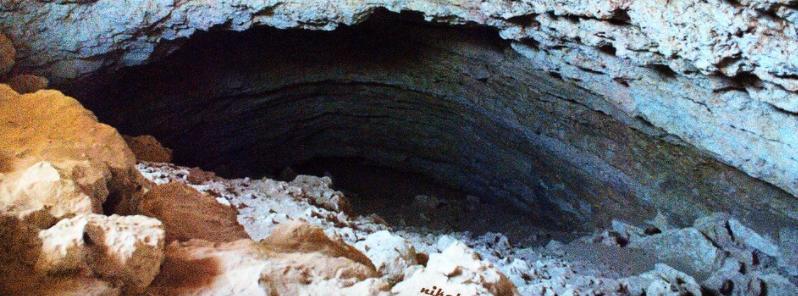600 large sinkholes open in Turkey’s breadbasket amid worsening drought

Huge sinkholes fill the drought-stricken breadbasket areas of Konya, Turkey, posing a challenge for farmers as they look for other means to water their fields, the French Press Agency (AFP) reports. Experts have so far counted around 600 large sinkholes– nearly twice the number of 350 in 2019, as the dry spell situation gets worse this year.
"The drought situation is getting worse," said 57-year-old farmer, Tahsin Gundogdu, whose harvest includes potatoes that he sells to PepsiCo Inc. in the United States. Sinkholes appear when underground chambers created by drought can no longer hold the weight of the layer of soil above.
The situation left farmers worried as attempts to collect water by other means would be more expensive, thus, cutting their income. However, continued dependence on groundwater will possibly aggravate the problem.
According to Fetullah Arik, a professor at the Konya Technical University Faculty of Engineering and Natural Sciences and the head of Sinkhole Research Center, around 600 sinkholes have opened in the Konya plain this year– almost twice the 350 counted in 2019.
Experts said they want the government to do more effort in addressing the severe drought, blaming the lack of proper water management policy.
"We usually would water the land twice a year but now we're doing it five or six times," said Karapinar farmer Hazim Sezer. Gundogdu, on the other hand, said some farmers use groundwater illegally to water their fields.

The sinkholes are absolutely massive. Fetullah Arık says there are around 600 (!) in Konya. This is up from 350 suspected in early 2020. Arık heads the Sinkhole Research Centre at Konya Technical Uni. What are sinkholes, this link explains: https://t.co/lD77lvVwO6
(Images by me) pic.twitter.com/k1ocy7GgSq— Raziye Akkoç (@RazAkkoc) April 22, 2021
The drought situation will affect farmers and consumers 'as much as, if not worse,' than the economic shock of COVID-19, if left unaddressed, said Baki Remzi Suicmez, head of Turkey's Chamber of Agricultural Engineers (ZMO).
"Until last year, we had never seen a drought like this," farmer Kamil Isikli remarked, adding that he was more hopeful for 2021 as rain fell earlier this year. "Farmers no longer have enough money from one month to the next to pay their bills. They can't afford anything anymore."
Sezer urged the government to make underground systems that redirect water to the plains, which would otherwise end up in the ocean.
Murat Akbulut, head of ZMO's Konya branch, noted that this could provide a "significant" solution for Konya, where Beysehir Lake has seen its reserves drop from 450 million tons to 123 million in 2020, which "will lead to real irrigation issues for the plain."
Almost 77 percent of Turkey's water is consumed by the agricultural sector, Suicmez told the AFP.
Featured image credit: Flickr

The question is, have they asked The Lord Jesus Christ to help them? If I was them I would.